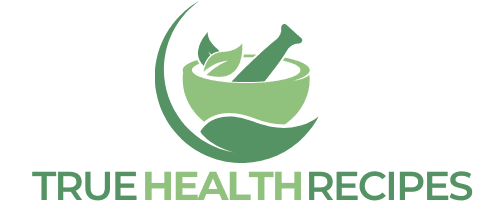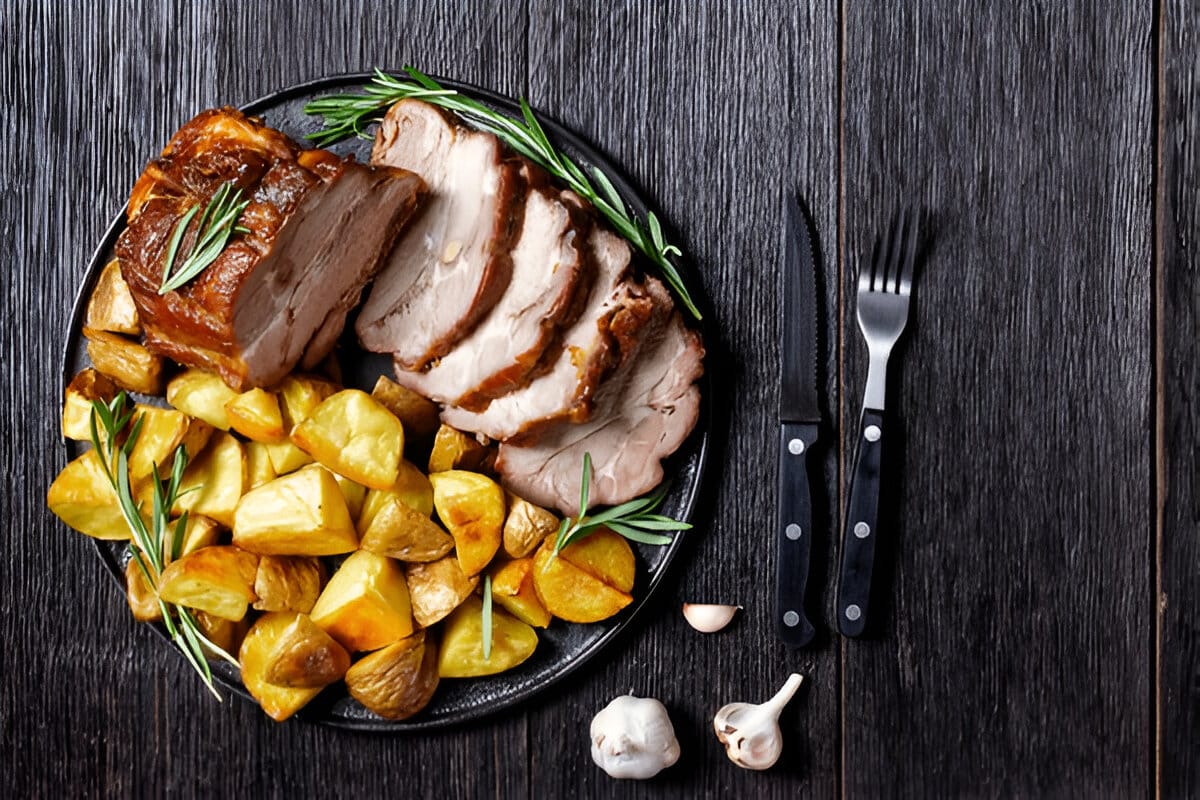Introduction
In today’s fast-paced world, meal prep often feels like an overwhelming task. However, there is a solution that can help you prepare wholesome, delicious meals with minimal effort: the slow cooker. And when you add the benefit of gluten-free recipes, you not only get ease and convenience but also meals that cater to dietary needs and health goals. Gluten-free slow cooker meals have gained massive popularity as more people embrace this cooking style to save time and create nutritious meals. Whether you’re dealing with a gluten intolerance, following a specific diet, or simply looking to incorporate more wholesome foods into your meals, the slow cooker is your best friend.
In this guide, we’ll delve into the basics of gluten-free slow cooking, share mouthwatering recipes, and highlight the benefits that come with using your slow cooker. From hearty stews to savory chicken dishes, you’ll find the inspiration and tools you need to make the most out of your gluten-free diet without sacrificing flavor or variety.
Key Aspects of Gluten-Free Slow Cooker Meals
When it comes to cooking gluten-free meals in a slow cooker, there are several key aspects to keep in mind to ensure both flavor and healthiness. Below, we’ll discuss these aspects and how they play a critical role in crafting the perfect slow-cooked meal.
1. Understanding Gluten-Free Ingredients
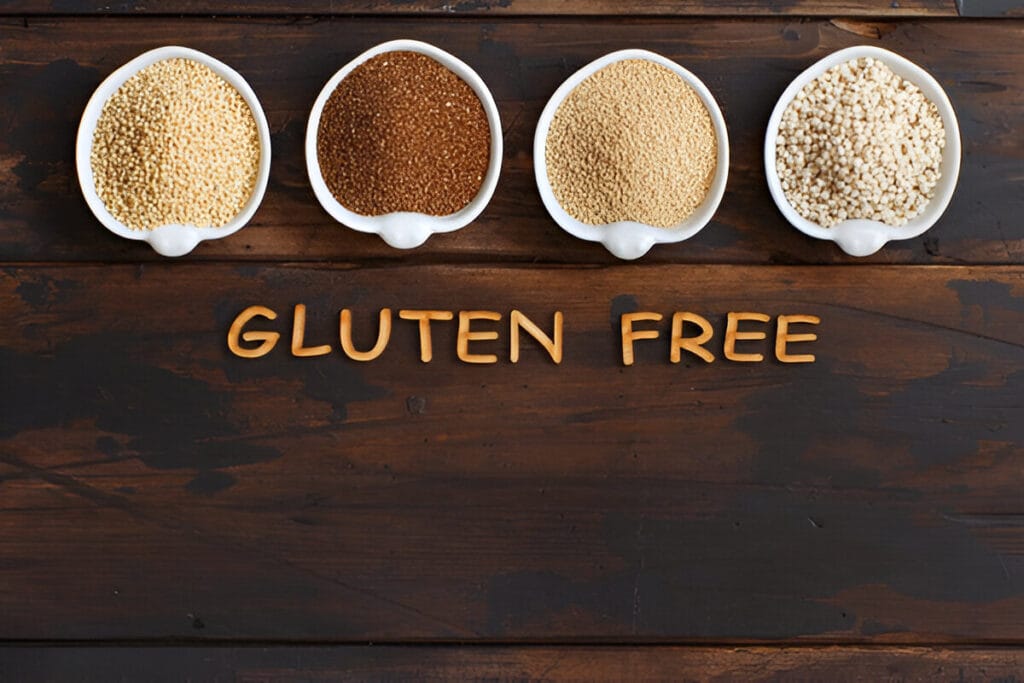
At the heart of gluten-free slow cooker meals lies the use of naturally gluten-free ingredients. Whole foods like fresh vegetables, lean meats, legumes, rice, and gluten-free grains are staples in gluten-free slow-cooker recipes. Since gluten is found in wheat, barley, and rye, it’s essential to avoid these grains and instead choose gluten-free alternatives such as quinoa, rice, corn, and oats.
Gluten-free flours and thickeners, such as rice flour, cornstarch, or arrowroot powder, can be used to thicken sauces or soups in a slow cooker, ensuring that your meals don’t lack the rich texture that gluten can provide.
2. Time-Saving and Flavor Enhancement
One of the primary benefits of slow cooking is the hands-off nature of the method. By using the slow cooker, you can prepare ingredients in the morning and return home to a fully-cooked, flavorful meal. The slow cooking process allows the flavors of your ingredients to meld together in ways that stovetop cooking can’t replicate.
Moreover, slow cookers allow for a richer, more profound taste in stews, soups, and casseroles, as the longer cooking time helps to tenderize meats, infuse spices, and soften vegetables, creating meals that are not only healthier but more satisfying.
3. Nutritional Benefits
Slow-cooked meals offer numerous nutritional benefits, especially when made with whole, unprocessed ingredients. Many gluten-free slow-cooker recipes feature vegetables, lean proteins, and fiber-rich grains, which can promote digestive health, heart health, and overall well-being. The ability to prepare nutrient-dense meals without the need for refined sugars or processed ingredients makes slow cooking a perfect choice for health-conscious eaters.
4. Meal Planning and Versatility
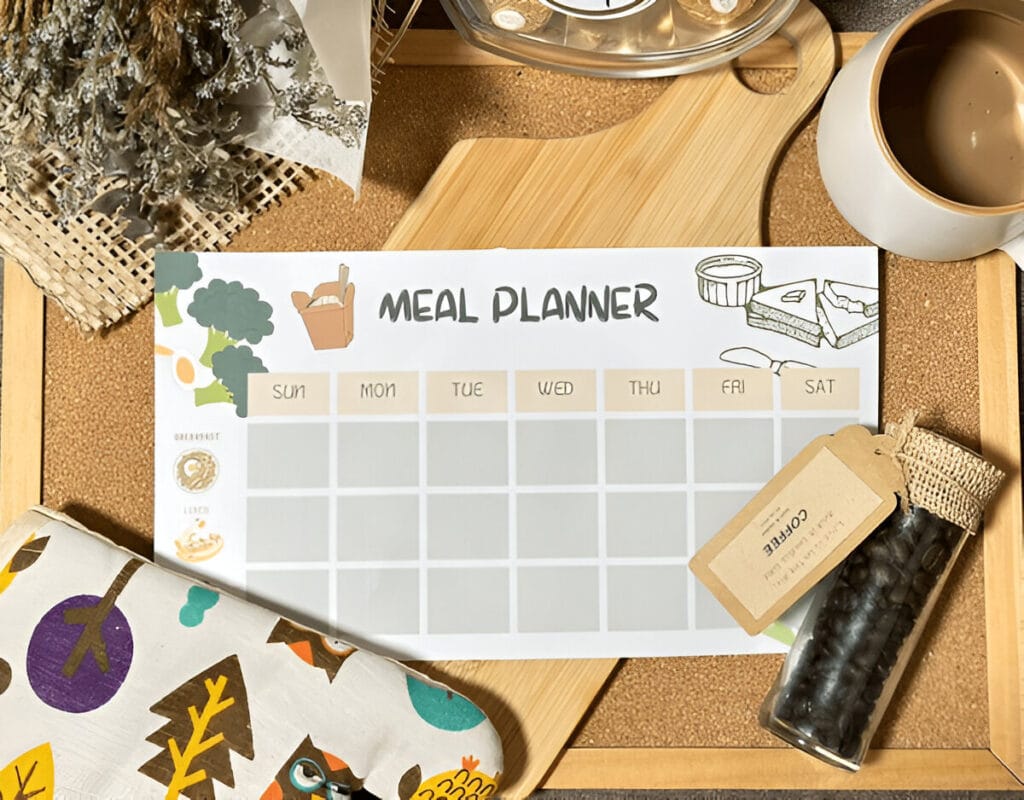
Another major advantage of gluten-free slow cooker meals is the ability to plan and prepare meals in advance. Batch cooking is ideal for busy families or individuals who want to save time throughout the week. You can make a large portion of a stew, curry, or casserole, store it in portions, and enjoy it on multiple days. Moreover, slow cookers are incredibly versatile, allowing you to create dishes ranging from savory to sweet, all while adhering to your gluten-free diet.
5. Cost-Effective Cooking
Slow cookers can be an excellent way to stretch your food budget. By choosing affordable cuts of meat, such as chicken thighs, beef chuck, or pork shoulder, and cooking them low and slow, you’ll get tender and flavorful results without spending a fortune. In addition, the long cooking time helps to break down tougher cuts of meat, making them as tender as more expensive cuts.
Gluten-Free Slow Cooker Meal Recipes
Here are a few gluten-free slow cooker meals that are not only easy to make but are guaranteed to please everyone at the dinner table.
1. Gluten-Free Slow Cooker Chicken and Rice
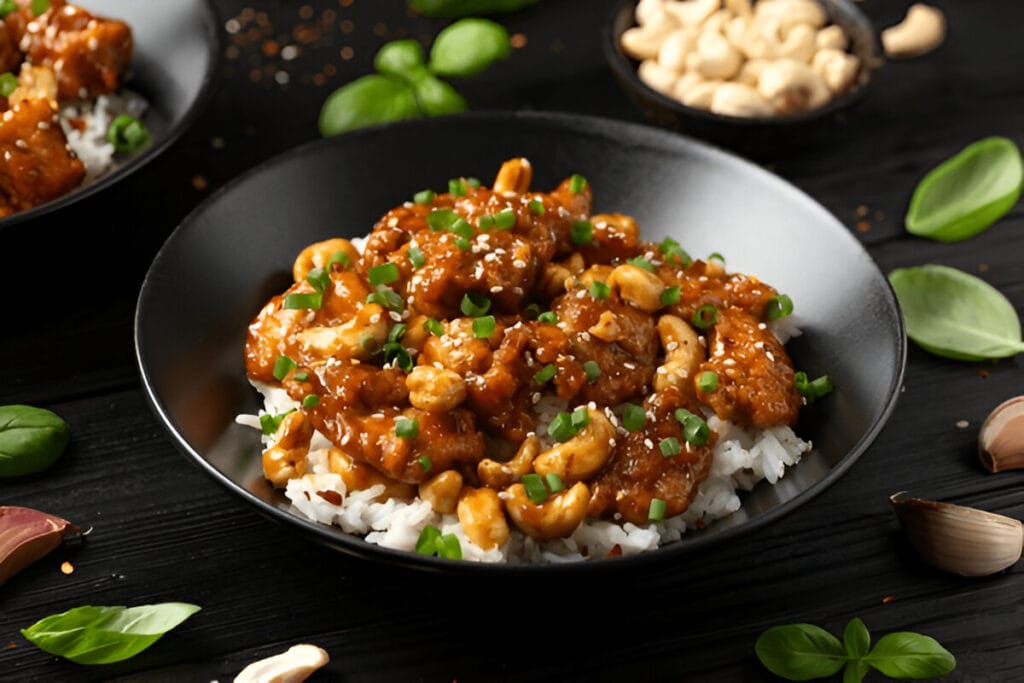
Ingredients:
- 4 boneless, skinless chicken breasts
- 1 cup gluten-free rice
- 2 cups low-sodium chicken broth
- 1 medium onion, diced
- 2 cloves garlic, minced
- 1 tsp turmeric
- 1 tsp cumin
- Salt and pepper to taste
Instructions:
- Layer the chicken breasts at the bottom of the slow cooker.
- Add the rice, diced onion, garlic, turmeric, cumin, salt, and pepper over the chicken.
- Pour the chicken broth over all the ingredients, ensuring the rice is submerged.
- Cover and cook on low for 6 hours or until the chicken is fully cooked and the rice is tender.
- Use a fork to fluff the rice, then serve it while it’s hot.
Nutritional Information (per serving):
- Calories: 320
- Protein: 30g
- Carbs: 35g
- Fat: 5g
- Fiber: 2g
2. Gluten-Free Beef Stew
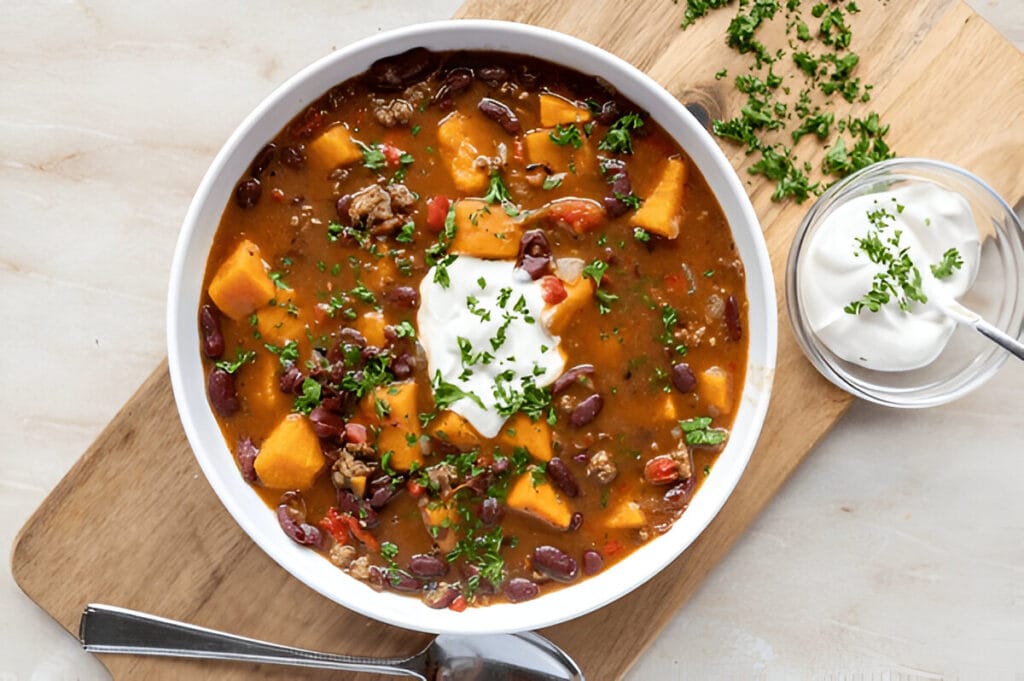
Ingredients:
- 2 lbs beef stew meat (cut into cubes)
- 4 large carrots, sliced
- 4 medium potatoes, diced
- 1 onion, chopped
- 2 cloves garlic, minced
- 2 cups beef broth (gluten-free)
- 1 tsp dried thyme
- 1 tsp dried rosemary
- Salt and pepper to taste
Instructions:
- Add the beef stew meat, carrots, potatoes, onion, and garlic to the slow cooker.
- Add the beef broth, thyme, rosemary, salt, and pepper, stirring to combine.
- Cover and cook on low for 7-8 hours or until the beef is tender and the vegetables are soft.
- Adjust seasoning as needed before serving.
Nutritional Information (per serving):
- Calories: 450
- Protein: 35g
- Carbs: 40g
- Fat: 18g
- Fiber: 5g
3. Slow Cooker Vegetable Chili
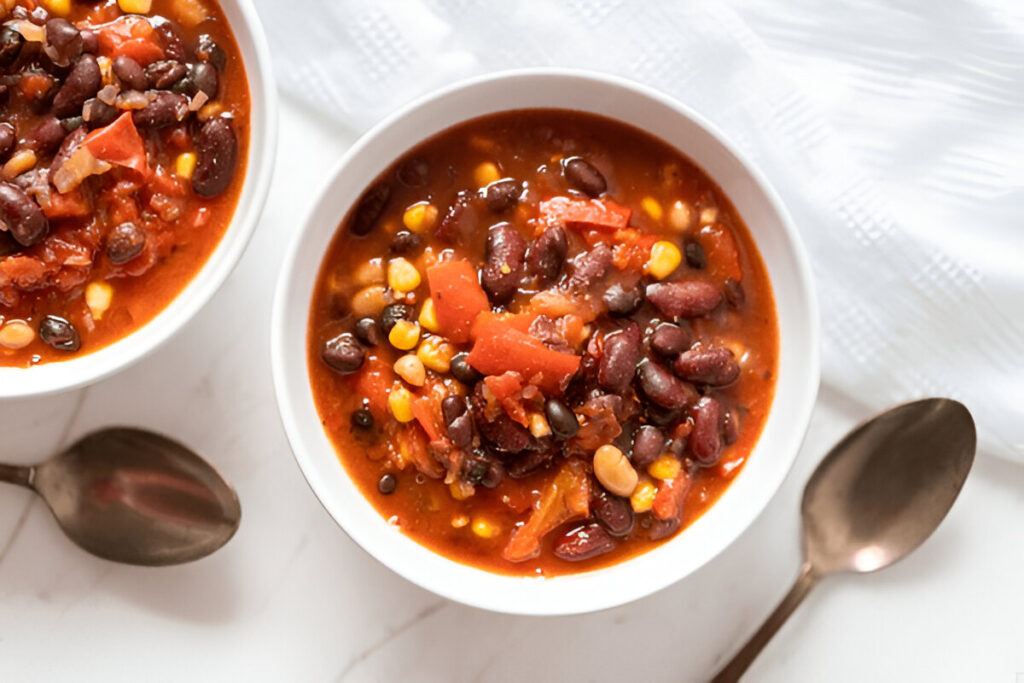
Ingredients:
- 2 cups diced tomatoes
- 1 can (15 oz) kidney beans, drained and rinsed
- 1 can (15 oz) black beans, drained and rinsed
- 1 cup corn kernels (fresh or frozen)
- 1 onion, chopped
- 2 cloves garlic, minced
- 1 bell pepper, diced
- 1 tbsp chili powder
- 1 tsp cumin
- 1 tsp paprika
- Salt and pepper to taste
Instructions:
- Combine all ingredients in the slow cooker.
- Stir well, ensuring the spices are evenly distributed.
- Cover and cook on low for 6 hours, stirring halfway through if possible.
- Taste and adjust seasoning as needed before serving.
Nutritional Information (per serving):
- Calories: 290
- Protein: 12g
- Carbs: 55g
- Fat: 5g
- Fiber: 15g
Benefits of Gluten-Free Slow Cooker Meals
1. Convenience
One of the most significant advantages of using a slow cooker is the convenience it offers. Simply prepare your ingredients in the morning, set the slow cooker on low, and let it work its magic while you focus on other tasks. By dinnertime, you’ll have a fully-cooked meal waiting for you, allowing you to enjoy a hot, homemade dinner without spending hours in the kitchen.
2. Healthier Eating Habits
Gluten-free slow cooker meals help people with gluten intolerance or celiac disease avoid cross-contamination while still enjoying flavorful, nutritious dishes. The slow cooking process also retains nutrients better than some other cooking methods, helping preserve the vitamins and minerals in vegetables and lean meats.
3. Affordable
Slow-cooker meals can be an inexpensive way to cook for a family. By using inexpensive cuts of meat, such as pork shoulder or beef stew meat, and adding hearty vegetables and legumes, you can create a nutritious and filling meal without breaking the bank.
Overcoming Challenges with Gluten-Free Slow Cooker Meals
Despite the ease and health benefits, gluten-free slow-cooker meals can come with challenges. For instance, you might worry about the texture of gluten-free grains or flours when they cook in a slow cooker. A good tip is to make sure that you use the correct type of flour or thickening agent to maintain the right consistency in sauces and gravies. Experimenting with alternative grains such as quinoa or buckwheat can also help you achieve the perfect texture without compromising flavor.
Another potential challenge is ensuring that your slow cooker is thoroughly cleaned to prevent cross-contamination if you are cooking for someone with severe gluten intolerance. Always wash your slow cooker thoroughly after each use and consider designating a separate slow cooker for gluten-free cooking if possible.
Future Trends or Emerging Insights
The future of gluten-free slow cooking looks promising, with an increased emphasis on plant-based meals and sustainable food sourcing. As more people turn to plant-based diets for health and environmental reasons, expect to see more vegetarian and vegan-friendly gluten-free slow cooker recipes popping up. From lentil stews to tempeh curries, slow cookers will continue to be an excellent tool for creating hearty, plant
